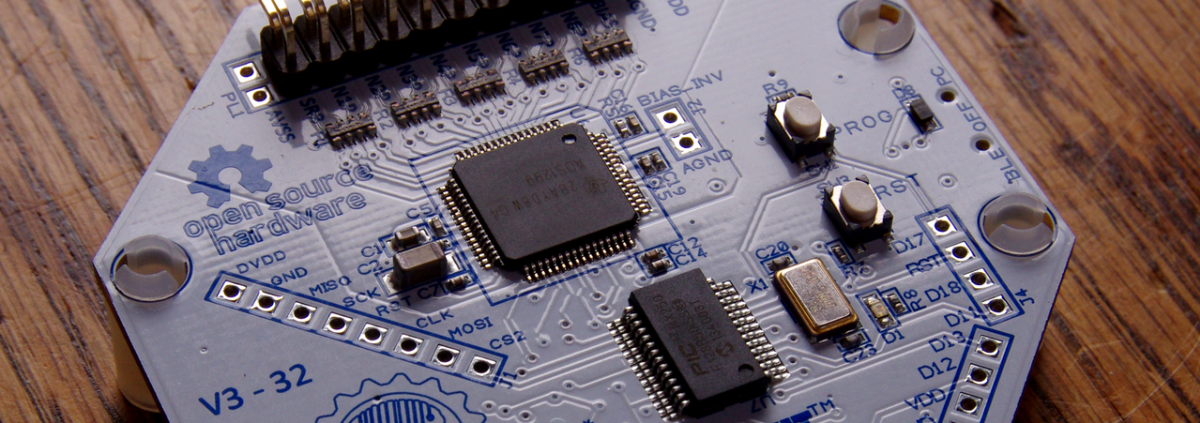OpenBCI is an open-source brain–computer interface platform,[1] created by Joel Murphy and Conor Russomanno, after a successful Kickstarter campaign in late 2013.
OpenBCI boards can be used to measure and record electrical activity produced by the brain (EEG), muscles (EMG), and heart (EKG), and is compatible with standard EEG electrodes. The OpenBCI boards can be used with the open source OpenBCI GUI, or they can be integrated with other open-source EEG signal processing tools.
Hardware
The OpenBCI 32-bit board uses the ADS1299, an IC developed by Texas Instruments for biopotential measurements.[2] The OpenBCI uses a microcontroller for on-board processing — the 8bit version (now deprecated) uses an Arduino-compatible ATmega328P IC, while the 32bit board uses a PIC microcontroller — and can write the EEG data to an SD card, or transmit it to software on a computer over a bluetooth link.
In 2015, OpenBCI announced the Ganglion board with a 2nd Kickstarter campaign. It costs $200 and has 4 input channels for measuring EEG, EMG, and EKG, and is also Bluetooth enabled.
Software
OpenBCI has released an open-source application for use with the OpenBCI, written with Processing. Display and processing software written in NodeJS and Python are also available.
3D Printed Headset
Design files for a 3D printed headset for pre-production OpenBCI boards have been released on GitHub. The headset, known as the Ultracortex, holds the electrodes in place, and makes it easy to configure their placement using the 10–20 System. A headset design files are available for download from OpenBCI's GitHub account, or the headset can be purchased from the OpenBCI online store. The headsets are manufactured and produced by Voodoo Manufacturing.
Text from Wikipedia under Licence CC BY-A 4.0 international
Source header image | Auteur : Omphalosskeptic | Licence CC BY-SA 4.0 international
